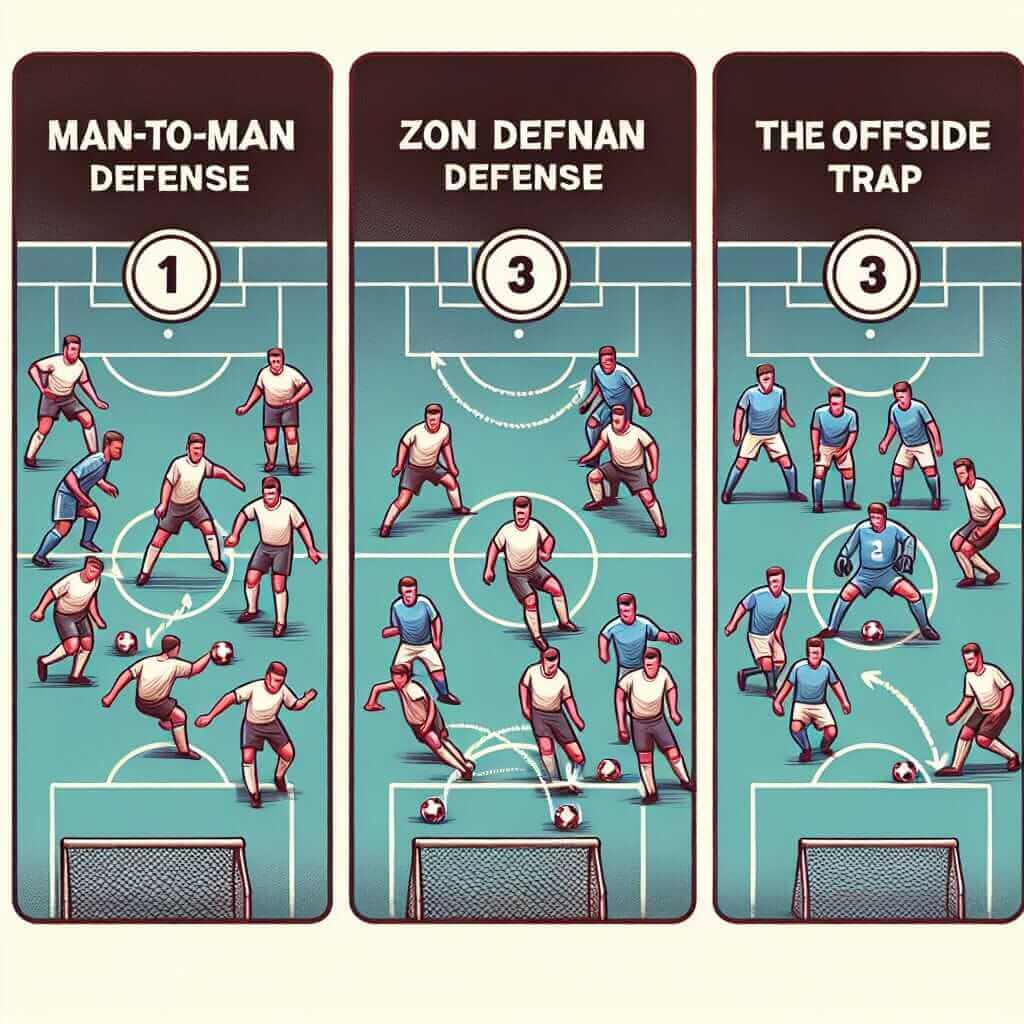As an IELTS instructor with over 20 years of experience, I understand the importance of having a rich vocabulary for achieving a high score in the Speaking and Writing sections. Today, we’ll focus on a niche yet impactful area: defensive plays. Whether you’re a sports enthusiast eager to express yourself eloquently or simply aiming to diversify your vocabulary for the IELTS, understanding how to describe defensive strategies effectively can significantly boost your language skills.
Why is Knowing Defensive Vocabulary Important for IELTS?
While not a direct topic in the IELTS, possessing a broad range of vocabulary, including specialized terms like those used in sports, demonstrates your ability to:
- Express yourself precisely: Being able to differentiate between a “block” and a “tackle” showcases your command of nuanced vocabulary.
- Comprehend complex texts: Encountering sports-related passages in the Reading section becomes easier when you’re familiar with the terminology.
- Engage in fluent conversations: Describing a sporting event or sharing your interests during the Speaking test becomes more dynamic and engaging.
Deciphering Defensive Plays: Key Terms and their Usage
Let’s delve into some crucial words and phrases associated with defensive plays, accompanied by illustrative examples:
General Defensive Terms:
- Defense/Defence (n.): The team or players trying to prevent the opposing team from scoring.
- Example: “Their strong defense was the key to their victory.”
- Defend (v.): To protect one’s goal or territory from attack.
- Example: “The goalkeeper made a brilliant save to defend their lead.”
- Defensive Play (n.): A strategic action taken by the defensive team to stop the opposing team.
- Example: “The coach praised his team’s disciplined defensive play.”
Specific Defensive Actions:
- Tackle (n./v.): To take the ball from an opponent by using your feet or body.
- Example: “The defender made a crucial tackle, stopping the striker in his tracks.”
- Block (n./v.): To prevent a shot or pass by getting in the way with your body or a part of your body.
- Example: “The defender jumped to block the shot, sending the ball out of bounds.”
- Intercept (v.): To catch or gain possession of the ball before it reaches its intended target.
- Example: “The midfielder made a vital interception, cutting off the opponent’s passing lane.”
- Clearance (n.): A defensive action where a player kicks the ball away from their own goal area.
- Example: “The defender made a powerful clearance, sending the ball upfield.”
- Mark (v.): To guard a specific opponent closely to prevent them from receiving the ball.
- Example: “The defender was tasked with marking the opposing team’s star player.”
Advanced Defensive Strategies:
- Zone Defense: A defensive strategy where players guard specific areas of the field rather than individual opponents.
- Example: “The team switched to a zone defense to counter the opponent’s quick passing.”
- Man-to-Man Defense: A defensive strategy where each player is assigned to guard a specific opponent.
- Example: “Their aggressive man-to-man defense suffocated the opponent’s attack.”
- Offside Trap: A coordinated defensive tactic to catch an attacking player offside.
- Example: “The defenders timed their run perfectly, springing the offside trap.”

Applying Defensive Vocabulary in Your IELTS Exam:
Speaking: When discussing sports, use these terms to articulate your points effectively. For example:
- “I admire how that basketball player always manages to block shots with such precision.”
- “The football team’s success was largely due to their impenetrable defense and well-timed tackles.”
Writing: If you encounter a passage related to sports, understanding these terms can enhance your comprehension. In your own writing, consider using them metaphorically:
- “The company implemented a new marketing strategy, hoping to block their competitor’s advances.”
- “Negotiators worked tirelessly to defend their client’s interests during the meeting.”
Conclusion:
Expanding your vocabulary is an ongoing journey, and mastering niche areas like defensive terminology can give you a significant edge in your IELTS exam. By incorporating these words into your speaking and writing, you demonstrate linguistic dexterity and a nuanced understanding of the English language. Remember, consistent practice and active application are key to solidifying your vocabulary and achieving your desired IELTS score.